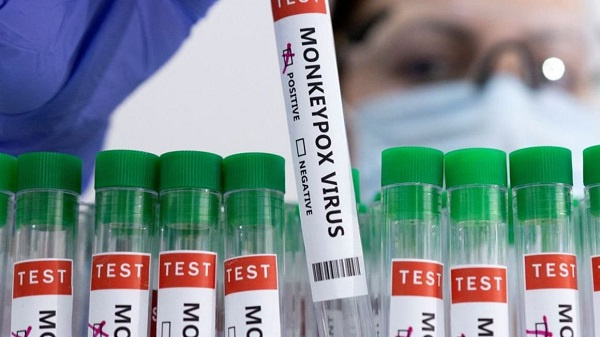 |
| WHO has raised an alarm on increasing monkeypox cases around the world |
DAR ES SALAAM, May 27 (NNN-AGENCIES) — Tanzania’s Ministry of Health had issued an alert over the monkeypox disease that has affected various countries in Africa and the world.
On Wednesday, the ministry shared a poster with information on the disease symptoms and also urged the public to be cautious.
Symptoms include swollen lymph nodes, fever, headaches and muscle, and body aches. The Health Ministry urged anyone with these symptoms to go to health centres for proper diagnosis and treatment.
No case of the disease has been reported in Tanzania, but cases have been reported in Europe in the past few weeks with the World Health Organization (WHO) raising the alarm on increasing monkeypox cases around the world.
Tanzania’s Deputy Minister for Health, Godwin Mollel, said in a statement that the public needs to take precautions against the monkeypox and other infectious diseases.
“There are no monkeypox patients in Tanzania, regardless, members of the public are cautioned to avoid touching [or] eating sick animals or carcass, as well as avoid touching anything that has been used by a sick animal,” said Dr. Mollel.
The Health Ministry is keeping an eye on infectious disease trends and taking strict measures, including screening of travellers entering Tanzania, to protect residents.
The ministry is also monitoring key trends of infectious diseases through information exchange from the community level and raising awareness on prevention measures, including personal hygiene and general cleanliness, Dr. Mollel added.
Monkeypox is endemic to the west and central Africa, with many infections reported in the Democratic Republic of Congo (DRC), a close neighbour to Tanzania and a recently admitted new member of the East African Community.
Monkeypox infections outside Africa have been linked to international travel and imported animals.
The WHO says the monkeypox virus is transmitted through close contact with lesions, body fluids, respiratory droplets, and contaminated items including clothing and bedding materials.
This disease is usually self-limiting but may be severe in some individuals, such as children, pregnant women, or persons with immune suppression due to other health conditions, WHO said in its report. — NNN-AGENCIES






